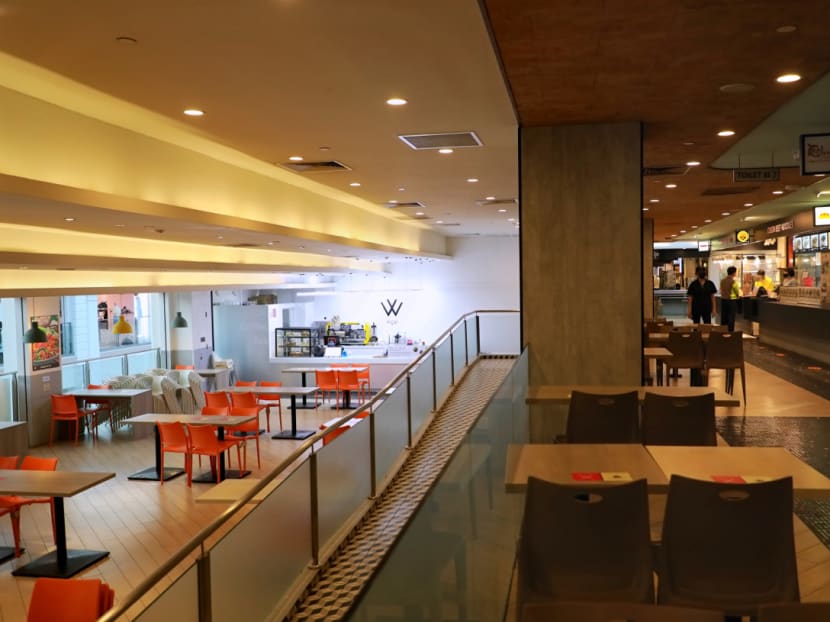Covid-19: Gan urges struggling firms not to lose sight of future, with Singapore ‘so close to reaching end of tunnel’
SINGAPORE — Businesses, including those in hard-hit sectors such as food-and-beverage (F&B) and retail, “should not lose sight of the future” when Covid-19 is expected to become endemic and demand will return, Trade and Industry Minister Gan Kim Yong said on Monday (July 26).

When Singapore lives with Covid-19 as an endemic disease, businesses may largely revert to regular operations and, in most cases, will not have to shut their premises for deep cleaning when cases are detected.
- To prepare for recovery, firms can encourage eligible staff to get vaccinated and integrate self-tests into work processes, Mr Gan Kim Yong said
- As vaccination coverage rises, restrictions on gatherings will be eased and capacity limits at events raised
- The Government is also looking to ease border controls safely
- It will also facilitate travel with countries that have managed Covid-19 well
- This will be to and allow vaccinated persons to travel and do business more freely
SINGAPORE — Businesses, including those in hard-hit sectors such as food-and-beverage (F&B) and retail, “should not lose sight of the future” when Covid-19 is expected to become endemic and demand will return, Trade and Industry Minister Gan Kim Yong said on Monday (July 26).
This is even as Singapore deals with the short-term impact of Covid-19 during the present heightened alert phase to curb a spike in coronavirus infections, he said in a ministerial statement to Parliament on the Government’s response to the pandemic.
“We are so close to reaching the end of the tunnel. We will soon achieve a high vaccination coverage, which will allow us to move decisively to a Covid-resilient state.
“I want to appeal to everyone to not lose heart and work together to press on in our journey.”
Mr Gan, co-chair of the Government's Covid-19 task force, noted that in preparation for the eventual reopening, businesses can encourage and open the way for all medically eligible employees — especially those involved in activities that require regular contact with others — to get vaccinated.
Those who cannot be inoculated should be deployed to lower-risk settings.
The minister also urged businesses to integrate the use of antigen rapid test kits in their work processes. This applies especially to firms that provide services requiring frequent contact or that employ a pool of workers that change frequently.
“I know of several employers who have made bulk purchases of these testing kits, so their staff can easily access them if needed. This is a good idea and I encourage other employers to do the same,” Mr Gan said.
Employees should also be encouraged to self-isolate and get themselves tested if they are unwell or if they suspect that they may have been exposed to the coronavirus.
Flexible work arrangements should also continue, and business continuity plans to strengthen operational resilience should be rolled out as well, Mr Gan added.
“Even as we plan ahead, we know that businesses are naturally concerned about what an endemic state means for their daily operations and the adjustments they may need to make as we get there.”
He sketched out a vision of the path forward to help them make plans.
With higher vaccination rates, he said that the Government would adjust infection control measures in stages, subject to trends in serious cases.
These include easing restrictions on social gatherings to allow larger groups to dine at eateries, and lowering requirements and raising capacity for events.
The Government will also take a differentiated approach where vaccinated individuals may engage in a wider range of social activities and in larger groups. Those who are not vaccinated will be able to do so only with a negative pre-event Covid-19 test result.
With restrictions being rolled back, Mr Gan said that F&B, retail and other businesses providing in-person services, such as gyms and beauty services, will see a return of demand.
He added that sectors such as tourism, cruises, and meetings, incentives, conferences and exhibitions will also get some relief, as capacity limits go up progressively. It will be some time, though, before foreign tourists return.
“Workplace restrictions will also be eased and, progressively, more workers can go back to the office. Businesses will be able to conduct important face-to-face meetings or hold workplace events that are important for networking or team bonding.”
Mr Gan said that the Government is also looking at relaxing border restrictions safely as the country’s economy requires “a steady flow of people in and out of Singapore”.
“As a business hub, many of our executives have to travel to manage and grow their regional businesses. Our tourism and meetings, incentives, conferences and exhibitions industry, as well as our air hub status, also critically depend on international connectivity.”
Members of the international community here have also not been able to return home to visit their families since the pandemic struck. There are Singaporeans whose loved ones are stranded overseas as well, Mr Gan noted.
As vaccination coverage increases, the Government will also pave the way for international travel to resume progressively with countries that have managed Covid-19 well. It will allow fully vaccinated persons to travel and do business more freely, too.
“This is a critical move that will allow us to reassert Singapore’s position as a business, travel and talent hub. We are working this out carefully and engaging partner countries, and will provide an update when ready.”
He added that some details of the plans that he outlined were still being finalised and would be made public in due course.
THE NEW NORMAL
For now, Singapore will continue pushing for higher vaccination coverage.
If the incidence of severe illness from Covid-19 remains low despite clusters emerging from time to time, the country will eventually be able to arrive at a state where the coronavirus is “truly endemic”, Mr Gan said.
This would mean that all social and workplace restrictions can be lifted, although mask-wearing and precautions at large events may stay.
Businesses can also largely revert to regular operations and, in most cases, will not have to shut their premises for deep cleaning.
And instead of piling huge resources into contact tracing, infected individuals with mild symptoms may be able to recover from home and close contacts will likely be required to monitor their health without the need for quarantine or self-isolation.
Mr Gan said that as Singapore moved towards this state, it was never under the illusion that it would be a straightforward process and had expected to face a few bumps along the way.
“I received many questions on whether our decision to return to Phase 2 (heightened alert) signals a reversal of our plan to transition to a Covid-endemic state. The answer is a clear 'no'.
“We are determined to get to our destination of being a Covid-resilient Singapore.”
VACCINE SUPPLY
Leader of the Opposition Pritam Singh directed a question to Mr Gan pertaining to the supply of Covid-19 vaccine.
“I think, previously, in updates that (the task force) had given, is (supply) still a problem? Or are we on track to open the economy in concert with the plan the (task force) announced, by September?” he asked.
Mr Gan replied: “It is still on track and the key is to look at the progress in our vaccination programme, (which) as (Health Minister Ong Ye Kung) explained just now, is picking up momentum.
“But it is important for us to focus a lot more on the vaccination of our senior population, which is of a greater concern to all of us.
“And therefore, I think, we continue to be on track with our economic opening, and as soon as we are able to reach our vaccination rate of 80 per cent and above around about September or October, I think we will be able to move in a bigger way in the opening of the economy.”
Mr Gan pointed out, however, that Singapore is “not likely to have a big bang opening” to allow everything “to be done in one go”.











